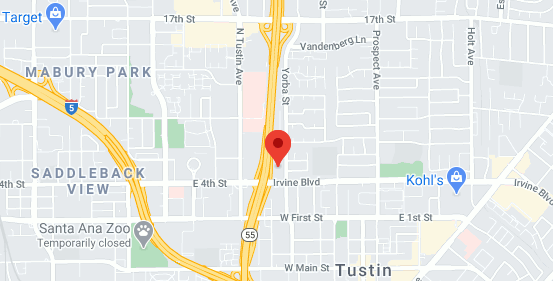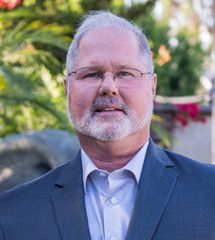Are you engaged in sexual behavior that is out-of-control and harmful? Or are you being told that you are? Are you wondering if you are a Sex Addict? Read my article below to learn more about this controversial area, and how I can help you:
(see a note to the partner of the sex addict here)

How many times have you said “I’ll quit tomorrow?” Today is that day. Take back control of your life right now. Call for an appointment.
Are you engaging in sexual behavior that has gotten out-of-control? Or are you being told that you do? As a Certified Sex Therapist in Orange County, CA, I get a lot of calls from people who wonder if they, or their partners, have crossed the line and have become “addicted.”
Most people say they love sex and it frequently occupies their thoughts. They often want more, and are unhappy or anxious when they have to do without for extended periods of time. If the subject were drugs, alcohol or gambling we would be concerned about their “obsession,” but sex is a natural, healthy biological process – so we celebrate their sexuality.
But what about when a line is crossed, when your interest in sex starts to get in the way of normal daily functioning? How about when you realize you’ve spent the last four hours looking at pornography online, or webcamming with others in an attempt to have a sexual experience? How about when you realize you don’t have money for the rent or you’ve maxed out your credit cards due to the prostitutes or hotel rooms you’ve paid for? Or when you’ve missed another class or business meeting due to more trading of email and pictures with an anonymous sexual acquaintance? How about when you’ve lost a job due to violating Internet policies or from coming in late due to staying out all night seeking sexual experiences? Or when the most important person in your life leaves you because you’ve broken too many promises to change your behavior?
Don’t wait until you experience the inevitable consequences in your relationship, job, health or legal standing – take action now to take back control of your life.
Whether or not this behavior meets the criteria for an “addiction” an “obsession,” or even as dangerous or illegal – it certainly is behavior that is damaging your life and you should seek to understand how you got here, and more importantly, what steps you need to take to stop, or reduce these habits. You’ve probably tried numerous times to make changes, but continue to fail and fall back into the same old patterns.
Not sure your sexual activity is affecting your life in a negative way? Here are some areas to consider. Be very honest with yourself here…it’s your future and happiness at stake:
Work: lost jobs; embarrassment by co-workers; lost promotions; fewer awards, general distraction and lost productivity. Is it having any impact on your being where you want to be – career wise?
Money: inability to purchase things you want/need because money is going towards sexual activities; resources that should be going to the family, children, home; no savings or retirement funds; creditors calling. Spending on websites, prostitutes/escorts, massage parlors, gifts/trips/hotels for sexual partners other than your spouse?
Relationships: spouse has left you; less or no contact with your children; have less time to maintain relationships that used to be important to you; strained communications; disappointed parents; you’ve begun isolating yourself.
Health: less sleep than necessary to function at your highest level; sexually transmitted diseases; poor eating habits; lack of exercise; constant fear of being discovered causing anxiety and depression, overweight and stressed, constant sweating.
Time: excessive hours on-line; driving and looking for activity; waiting, waiting, waiting for that connection or that view through a window; less time to spend with your spouse and children; ultimately, lost years of your life.
Other: lost reputation; self-esteem; anger at yourself and others; feeling helpless and hopeless; overall loss of self-worth that affects all areas of your life.
In general, do you feel great shame and guilt when you’ve once again gone over the line, after promising yourself that you would reduce or stop your unhealthy sexual activities? Too many hours, too much money, lying to your significant other, unsatisfying results…
1. Recurrent failure to resist impulses to engage in specific sexual behavior.
2. Frequently engaging in those behaviors to a greater extent or over a longer period of time than intended.
3. Persistent desire or unsuccessful efforts to stop, reduce, or control those behaviors.
4. Inordinate amount of time spent in obtaining sex, being sexual, or recovering from sexual experiences.
5. Preoccupation with the behavior or preparatory activities.
6. Frequently engaging in the behavior when expected to fulfill occupational, academic, domestic, or social obligations.
7. Continuation of the behavior despite knowledge of having persistent or recurrent social, financial, psychological, or physical problems caused or exacerbated by the behavior.
8. Need to increase the intensity, frequency, or number or risk of behaviors to achieve that same level of excitement or stimulation.
9. Giving up or limiting social, occupational or recreational activities because of the behavior.
10. Distress, anxiety, restlessness or irritability if unable to engage in the behavior.
If you meet three or more of these criteria, or if any one of them is causing great impairment or anxiety, please give me a call – there is help for you. No matter what you’ve tried in the past, I have the expertise to help you resolve these problems. I have a high success rate, including with clients who had nearly given up on themselves and who are now out of the woods and leading healthy, happy lives. Many, many families have been saved because a member had the courage to admit their problem and ask for help.
Ask yourself: How would my life change if my addictive behaviors changed?

Changing this behavior requires an admission that there is a problem, the realization that your many attempts to fix it by yourself have failed, and a willingness to ask for help, and to take some direction from someone with knowledge of and experience in this complex and many layered condition. In my practice, I usually find it most effective to start at the cognitive-behavioral level and begin by taking a full assessment and understanding what the main areas of concern are. Just as a person with an eating disorder can’t abstain from consuming food, I don’t expect anyone to abstain from all sexual activity, although this may be necessary on some level in the initial phase of restructuring your thought processes and behaviors, and learning new ways to express yourself sexually – or when the activity is doing immediate harm to your relationships, or physical or financial self.
It is important, when appropriate, to include the partner’s involvement during this phase, but we usually move towards focusing on the impaired member, and often bring the partner back into therapy later in the process. Of course, work individually with the non-offending partner can also be crucial to help them understand, process and heal the their anger, grief, anxiety and/or depression. Once the individual or couple has moved through the initial crisis, I start to explore the underlying causes of this self-destructive behavior – research has demonstrated that this sexual acting out is actually a symptom of much deeper dynamics, whether it be a way to deal with overwhelming stress, childhood trauma, or unreasonable expectations that we, or others, place on ourselves.
As with other addictions, sexual addiction knows no socio-economic-racial-cultural boundaries. I see rich and poor, young and old, gay and straight, married and single clients with these issues. Don’t be concerned if you feel your particular sexual interest is “different” from others, or that your therapist won’t understand. I, and other professionals who are licensed psychotherapists and have the additional designation of being Board Certified Sex Therapists, have extensive and unique training in all varieties of sexual issues and dysfunctions. In fact, most people benefit from knowing that they are not alone- that there are thousands of people involved in the same activities as themselves. Your confidentiality is legally assured with any licensed psychotherapist under the guidelines of the California Board of Behavioral Sciences. It can be a very freeing and unique experience to discuss your problems honestly and openly in a non-judgmental and understanding therapeutic environment. There is hope, you can change, you just have to decide that you’re tired of living in an unhealthy, unsatisfying way and make the decision to commit to change. Make no mistake – asking for help and being open to doing the necessary work will help you regain the life you desire, the life that you deserve.
For the Partner of the Sex Addict:

You’ll get nowhere blaming yourself, trying to change for your partner, or trying to fix this yourself. You aren’t trained in the area, and probably don’t yet understand the complexity and many dimensions involved.
You aren’t crazy, all of your feelings are valid, and don’t let your partner tell you that you are the problem. At this point, you should not trust your partner’s words, but hopefully you will eventually be able to trust their actions, as you gradually see positive changes in them – at least those who admit to their problem and are seeking and participating in treatment.
Your first step should be to start educating yourself, learn more about addiction and what processes are at work creating this problem. You also need support from others who understand this kind of addiction and maybe have even been through what you’re going through. This can be from a therapist trained in treating sex addiction, friends who are non-judgmental and care most about you, a trusted clergy member, and support groups designed to help you understand and survive this. Get professional help – no matter what your partners says – this will not change, will not fix itself, without going through a process of treatment and recovery…for both of you.
As they say in Al-Anon & COSA meetings, you didn’t CAUSE, you can’t CONTROL it, and you can’t CURE it. Come talk to someone who can assist you understand this devastating problem, and help you to help yourself and your spouse.
Michael Smith, Certified Sex Therapist, Addiction Specialist and Licensed Psychotherapist provides sex therapy, sex addiction and porn addiction counseling & treatment, substance abuse counseling and marriage counseling in Orange County & Southern California. Contact me at 949-338-9525 or email to smiththerapy at cox.net


